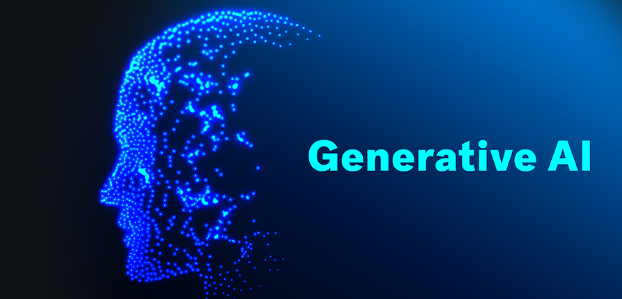The landscape of technology is ever-evolving, with Generative AI (GenAI) representing one of the latest frontiers. The implications are vast for IT companies, providing both present gains and promising future possibilities. Yet, despite its advantages, full monetization remains a horizon yet to be fully reached.
Understanding GenAI
Generative AI refers to algorithms, such as those used in machine learning, that can generate text, images, and other media. Unlike traditional AI, which follows set rules and recognizes patterns, GenAI can create new content, making it a valuable tool in various industries.
Present Benefits for IT Companies
Enhanced Functionality and Services
IT companies have integrated GenAI into their services, leading to more sophisticated offerings. Some key benefits include:
- Automated Content Generation: GenAI tools create high-quality content for clients, ranging from marketing materials to customer service responses.
- Improved Data Analysis: GenAI enhances data processing capabilities, allowing for deeper insights and better decision-making.
- Personalized Customer Experiences: GenAI enables the creation of personalized experiences by predicting user preferences and behaviors.
Operational Efficiency
Another critical advantage of GenAI for IT firms is increased operational efficiency. The solutions provided by GenAI can automate repetitive tasks such as:
- Data Entry: Reducing the manual burden and minimizing errors.
- Routine Inquiries: Automated customer support using AI chatbots.
- Software Testing: Automated test case generation and bug fixing.
Competitive Advantage
Companies leveraging GenAI often gain a competitive edge by being at the forefront of technological innovation. This advantage can lead to:
- Higher Client Retention: Offering advanced capabilities makes clients more likely to stay loyal.
- Attracting New Clients: Cutting-edge technology is a powerful draw for potential clients.
- Brand Enhancement: Being seen as an innovator can significantly boost a company’s brand.
The Hurdles to Full Monetization
Development Costs
Despite the advantages, developing robust GenAI systems is not without its costs. Significant investments are required, including:
- Research and Development (R&D): Extensive R&D efforts are necessary to develop and refine GenAI technologies.
- Talent Acquisition: Hiring experts in machine learning and AI is both competitive and expensive.
- Infrastructure: High-performance computing resources are a must to support GenAI applications.
Regulatory Challenges
Regulatory barriers frequently accompany technological advancements. With GenAI, there are several concerns:
- Data Privacy: As AI systems process large volumes of data, ensuring compliance with privacy laws like GDPR is crucial.
- Ethical Usage: Establishing guidelines and monitoring systems to prevent misuse of AI-generated content.
- Transparency: Maintaining transparency in how AI-generated decisions are made to build trust among end-users.
Market Maturity
For the full potential of GenAI to be monetized, market maturity is essential. At present, several factors indicate a maturity gap:
- User Trust: Building end-user trust in AI-generated content is an ongoing challenge.
- Adoption Rates: While growing, the adoption rates of GenAI solutions are not yet universal.
- Industry Standards: The lack of unified industry standards for GenAI hinders broader adaptation and trust.
Future Prospects
Expanding Applications
The future of GenAI is bright, with potential applications continuing to expand. Industries likely to see substantial transformation include:
- Healthcare: AI-generated diagnostics, patient care recommendations, and personalized medicine.
- Finance: Automated trading, customer service bots, and fraud detection.
- Retail: Personalized shopping experiences, inventory management, and trend analysis.
AI Ethics and Governance
As the technology matures, effective AI ethics and governance frameworks will become more prevalent. This will ensure:
- Responsible Usage: Preventing harmful consequences and promoting positive impacts.
- Increased Trust: Building user confidence in AI technologies through transparent practices.
- Regulatory Alignment: Ensuring AI applications comply with evolving laws and regulations.
Technological Advances
Technological progress will significantly enhance GenAI’s capabilities. Key areas to watch include:
- Improved Algorithms: Continuous improvements in AI algorithms will drive performance and efficiency gains.
- Quantum Computing: The integration of quantum computing could exponentially boost AI processing power.
- Interoperability: Enhanced interoperability standards will ease the integration of GenAI across different platforms and systems.
Conclusion
The journey of integrating GenAI into mainstream IT operations presents an exciting array of opportunities and challenges. While IT companies are already reaping numerous benefits, full monetization of GenAI innovations necessitates overcoming financial, regulatory, and market maturity hurdles.
Looking forward, the continued evolution of technology, alongside increasing adoption and the establishment of robust ethical frameworks, will undoubtedly pave the way for GenAI to realize its full potential. As we stand on the cusp of this technological revolution, those invested in GenAI are not just spectators but active participants crafting the future of intelligent automation.

